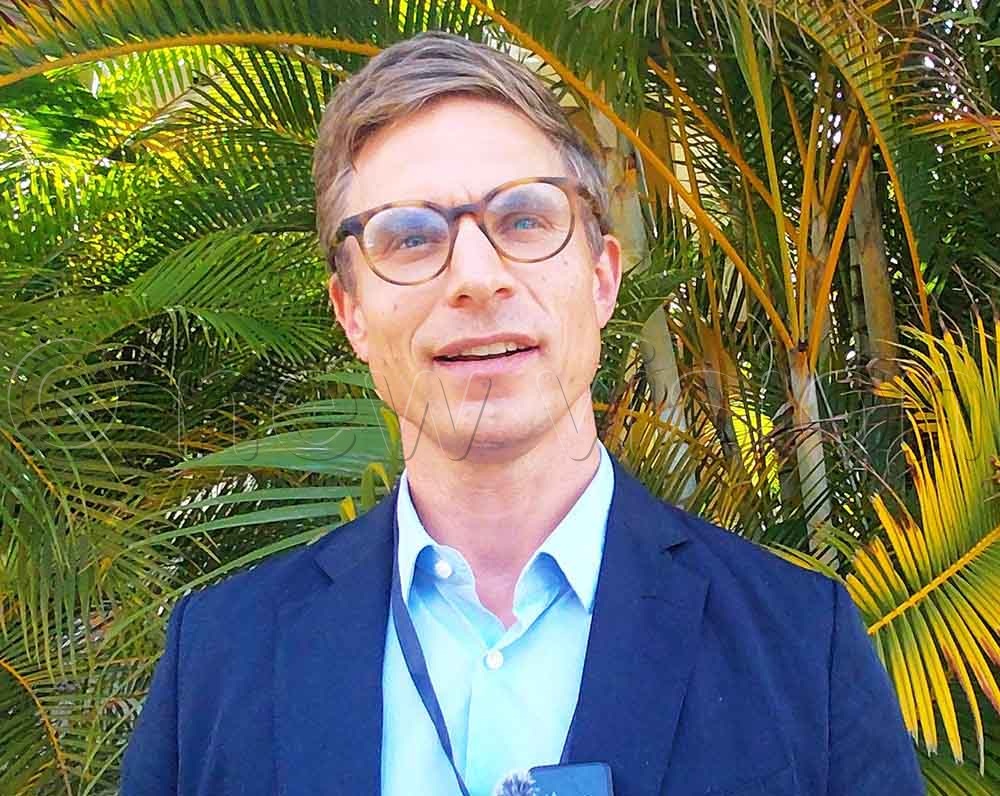Local governments urged on refugee sustainability plans
Over 30,000 refugee and host community smallholder farmers in the West Nile region are set to benefit from the new four-year URRI project funded by the Embassy of Denmark in Uganda.
Participants being taken through the implementation process of the URRI project in Westnile. (Credit: Robert Adiga)
ARUA - Local governments have been reminded to start developing refugee sustainability plans.
The call was made during a two-day Uganda Refugee Resilience Initiative (URRI) project implementation monitoring committee (IMC) meeting in Arua district on November 19, 2025.
Over 30,000 refugee and host community smallholder farmers in the West Nile region are set to benefit from the new four-year URRI project funded by the Embassy of Denmark in Uganda.
URRI aims to strengthen the resilience of both refugees and host communities through interventions in climate-smart agriculture, ecosystem restoration and gender equality.
The programme is implemented in six refugee-hosting districts across the region, notably Yumbe, Moyo, Obongi, Koboko, Terego, and Madi Okollo.
Running from September 2024 to December 2028, the project is implemented in the region in a consortium led by the Danish Refugee Council (DRC), in partnership with the Dan Church Aid, Community Empowerment for Rural Development (CEFORD), PALM Corps, Partners in Development, and the Centre for Holistic Transformation (PICOT).
Samuele Otim Rizzo, the country director Danish Refugee Council, cited cases where community members failed to own projects implemented under Northern Uganda Resilience Initiative (NURI), urging the local governments to embrace and adopt the project sustainability into district development plans.
“There is a road that was constructed during NURI, and up to now, when you ask people, they say it is the DRC road, and yet it should be our road, and the point is that the districts and communities should own the projects and allocate budgets for it because the time for handouts is over," Riizo said.
“The project is just six months into implementation, and we are already seeing some changes as the farmers have been trained and communities get empowered, and we are yet to see, but I can clearly see that the project is going in the right direction”, Sparre confirmed. (Credit: Robert Adiga)
Meanwhile, Adam Sparre Spliid, the deputy head of mission, also embassy head of co-operation, said the project was derived from the need to promote self-reliance amongst the refugees and host community, adding that 15 per cent of the project cost will be used for capacity building of the local government actors to drive sustainability.
“The project is just six months into implementation, and we are already seeing some changes as the farmers have been trained and communities get empowered, and we are yet to see, but I can clearly see that the project is going in the right direction”, Sparre confirmed.
Pollyn Iren Abina, the refugee desk officer Adjumani, commended the embassy of Denmark and implementing partners for the resilience projects amidst the dwindling donor funds.
“URRI programmes through such partnerships underscore the critical importance of collaboration and shared responsibility in tackling complex refugee issues and host community efforts, and we commend such partnerships as the donor funds continue to dwindle and making refugees and host communities resilient is the way to go," Pollyn said.
Adjumani district vice-chairperson Richard Kaijuka Arthur, who cited high refugee presence in the district with its associated challenges, said sustainability is key through involvement of relevant departments and policymakers.
Samuel Abe, the Refugee Welfare Council III (RWC III) chairperson for Lobule Refugee Settlement in Koboko, is happy that the project has already started yielding fruits through training farmers on planting of climate-resilient crops and tree planting.